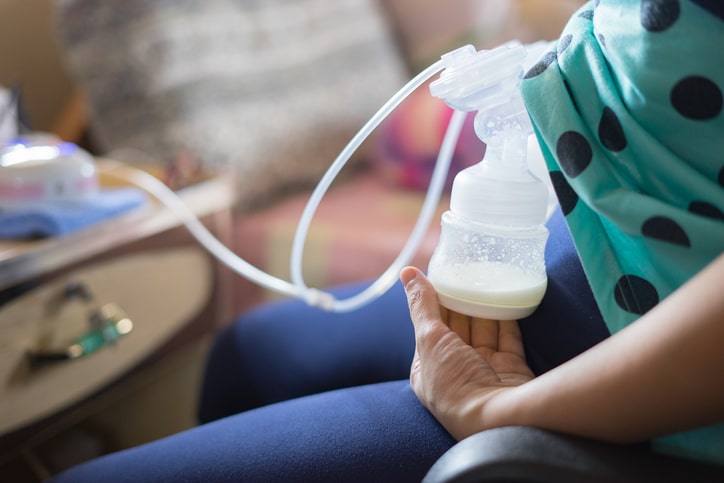California imposes a number of rules regarding lactation at work.

In February, a federal jury in Delaware awarded a former employee of Kentucky Fried Chicken (KFC) $1.5 million in damages for workplace discrimination. The employee, Autumn Lampkins, filed a lawsuit against KFC for gender discrimination and harassment. According to Lampkins, KFC made it so difficult for her to pump breastmilk that her milk dried up, and she was unable to breastfeed her child. According to the lawsuit, KFC did not provide adequate space for Lampkins to pump. Instead, she had to pump in a single stall bathroom and then in a non-private office where her supervisor continued to work and where there were both windows and surveillance cameras. She was then demoted and given a pay cut after being transferred to a nearby store.
This case was brought under federal law. According to an employment discrimination lawyer, the Fair Labor Standards Act (FLSA) requires employers to provide accommodations for breastfeeding mothers while they are at work. Under the FLSA, employers must provide unpaid, reasonable break time for employees to express breast milk for up to a year after a child’s birth. A private place other than a bathroom must also be provided for an employee to pump. If an employer has fewer than 50 employees, they may be exempt from these requirements if they would cause undue hardship, significant difficulty or expense in relation to the size, financial resources, nature or structure of the employer’s business.
California law also requires employers to permit employees to pump breast milk at work — and to provide a private place to do so. Under the California Labor Code, every employer must provide a reasonable amount of break time to accommodate employees who wish to pump breast milk. If possible, this break time should run concurrently with any break time already provided to the employee. As an experienced employment discrimination lawyer can explain, employers are not required to provide break time if doing so would seriously disrupt the operations of the employer.
Employers in California must also make reasonable efforts to provide a room or location, other than a bathroom, in close proximity to the mother’s work area so that she can express milk in private. It can be the place where the employee normally works if it meets these requirements. A temporary location may be acceptable if a permanent location cannot be dedicated, and it is private and free from intrusions while the employee uses it.
If you are breastfeeding and need to pump while at work, both California and federal law require that your employer accommodate your need to express milk, and to provide a private space to do so. While there are some exceptions to this general rule, if your employer refuses to accommodate your needs, you may have a claim for gender discrimination.
The attorneys of PLBH are dedicated to helping employees seek justice for all kinds of discrimination. Contact us today at (800) 435-7542 or info@plblaw.com to learn more about how we can assist you if you have experienced discrimination, harassment or retaliation.
